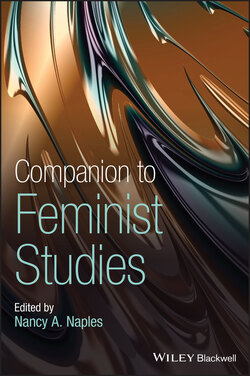Читать книгу Companion to Feminist Studies - Группа авторов - Страница 52
Sexual Violence
ОглавлениеIn Maria Bevacqua's work on rape and feminism, she discusses sexual violence emerging from consciousness‐raising sessions:
A central feature of the small women's liberation groups was consciousness‐raising (C‐R), the strategy credited with providing the critical context in which women talked about sensitive, even painful experiences openly. In this environment, rape was discussed candidly and nonjudgmentally, and participants in the movement came to understand rape as a common women's experience with political implications.
(Bevacqua 2000, p. 30)
A cornerstone of radical feminist belief was that patriarchy was maintained through the threat of sexual violence. Such a view positions rape not as a crime of sex, but one of power. One of the first works to articulate this was Susan Brownmiller's Against Our Will where she describes rape as “nothing more or less than a conscious process of intimidation by which all men keep all women in a state of fear” (Brownmiller 1975, p. 5). More recently, Catharine MacKinnon has continued with this position:
Rape is an act of dominance over women that works systematically to maintain a gender‐stratified society in which women occupy a disadvantaged status as the appropriate victims and targets of sexual aggression.
(MacKinnon 2005, p. 130)
While rape is viewed as a way to keep women frightened and dominated – and, in turn, needing protection from the very men they fear – rape is also viewed as part of the social conditioning of men in a culture where masculinity is understood as active, aggressive, and as enacted in opposition to femininity and against the bodies of women.
